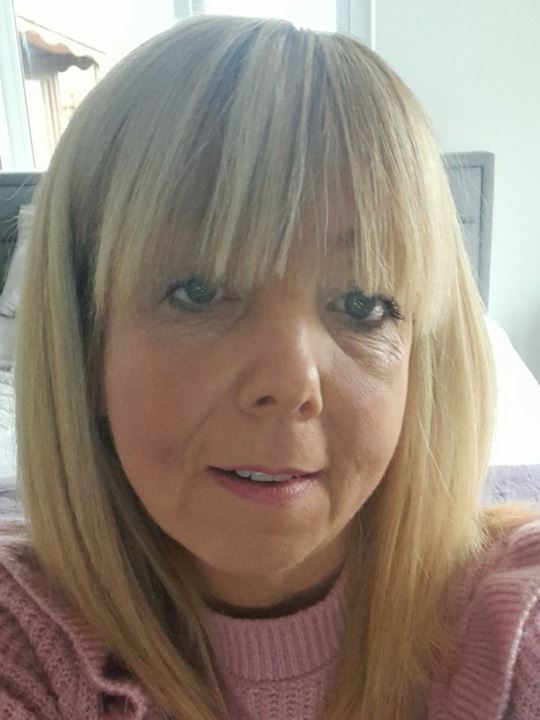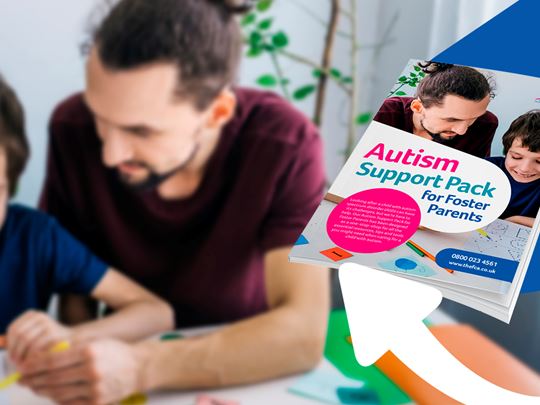Marlene began her fostering journey 14 years ago, in 2002, after an advert on television at Christmas encouraged her to foster.
“I come from a family of 7 siblings, it was a very busy, noisy house. I recall my childhood being full of fun and fighting” Marlene laughs, continuing: “I was always surrounded by people growing up, and when I got married to my partner and had my daughter, we realised we could look after a bigger family.”
Marlene explains that after an initial struggle with childbirth, she had made the decision that she was not prepared to have another child. She explains: “When my daughter was six, we decided we had enough room and enough love to give to foster. There were lots of adverts on TV at the time around fostering, and that gave me the final push towards doing this”.
She continued: “We wanted our daughter to embrace this and understand that there are many children out there who don’t have a regular loving home and we were going to offer that to a child who needs it. My daughter loved other children, she loved her cousins, and we knew that she would love this!”
Marlene thinks that when you foster children and have children of your own, it’s crucial that you consider the impact that is going to have on them as well as yourself, and that you’re prepared for anything, saying: “There have been highs and lows for her, which is quite normal. We have had a variety of children in this house over the years, including respite and that sometimes brings challenges. We had two teenage siblings and that unfortunately did not work out for us, so we had to do this to see what worked for us as a family”.
Having a strong support system around you can be extremely beneficial when you are a foster parent, and Marlene believes it is her support network that helps her along this journey: “My daughter is now 20, and I am a single carer; my daughter is my main support. She is resilient, she’s young and she’s reliable for the younger people and can speak to them on a different level to me. My sister also supports me massively and my brother too.

“I also have three foster carer friends who I met through support groups through the FCA. We have been friends for ten years and they have helped me massively. You can be honest with them; they might have had a bad day too. They are my best friends, and they understand!”
Ensuring you have a great support network around you can also be helpful when you are going through the more difficult times. Fostering does not come without its challenges, as Marlene explains: “Trauma is always harder. It took me a very long time to get my head around several different aspects of fostering, and now our ethos is that sometimes we need to sit and comfort the child and ‘sit with the sadness’ for a while.
“Sometimes these children need to be sad and process these things.
“Sometimes the child is not in a place where they can go out for an ice-cream and forget about things, they are sad and need to process what has happened.
“It’s not all about making them happy and giving them nice things, it’s about being a comforting presence and being kind. Sometimes they just need to know you are there”.
Marlene has taken care of 12 respite placements over the 14 years. She reveals: “Respite for me has been lovely. It’s like being a fun auntie! It is a lot more relaxed, and I did find that easier at first. I also found it great training, as you usually take on a variety of children over a short period of time.
“I am currently looking after a child with ADHD, and if I had not had respite experience with this, I would have been really worried about how to properly handle and take care of him and his needs.”
She continues; “This young person has been with me for eight years now and he is such a great help! He loves to help with the housework, he does the recycling, he loves the gym and lots of other activities, and by using his strengths and skills, we turned this around to fit in with his life, rather than forcing anything. We’re an active family and he loves that, he is brilliant!”
Fostering has made a positive impact on Marlene and her family’s life, she said: “I go to bed every night and yes, I am usually tired, but there I reflect upon the day and the fact that that child has benefitted massively by my family and the care we provide. You know you have done all that you can do to make life a little easier and brighter for them. It has made my daughter more of a balanced and empathetic person which is beautiful to see”.
Marlene explains: “The difference you can make to a child’s life is incredible. I once had a sibling group who rarely attended school, and there was an eight-year-old who could not read or write or spell his own name. Education is a big thing for me, it’s important and everyone is entitled to basic skills. Within 6 months of support from myself and the school, the boy could read and write and was getting ten out of ten in his spellings.”
Caring for a child with Autism
Marlene spent many years supporting a child who was autistic. She explains: “The young person came to me when he was twelve years old. He struggled so much that he liked to keep his school uniform on 7 days a week and that was very hard for us. At that stage, we did not know that he had autism, and we obviously did not have an extensive understanding of this.”
Marlene continued: “The label itself of ‘autism’ – frightened me because I had little understanding of it. I couldn’t make sense of the things he did and things he said. My supervising social worker supported me a lot and I went to a meeting about childhood and puberty training for children with ASD. At this training, I met a group of mums whose children had ASD, and they had a group in my local area and invited me to it which opened up a lot of doors for me to learn from and work alongside these parents who were going through the same struggles as me”
She explained: “He struggled making friends, had little confidence, and had struggles with foods, which we supported him with throughout the time he was with us. Now, that young person studies at Queen’s University in Belfast and is in his second year.
“He sat on the panel for the children’s commissioner for one year and was able to share some of his experience and what life was like in care, as well as autism and things that helped him. I have sat in the audience and listened to his presentation with my jaw open and tears in my eyes before, thinking I am so proud of who he has become. He is amazing and so inspirational! He really learnt through time to develop some empathy and even when he was eighteen, he wrote the kindest, most heartfelt letter to his supervising social workers, thanking them”.
Marlene reminisced: “For all the tough days, something like that makes it all worth it in the end”.
For anyone considering fostering, Marlene has the following advice: “All it takes is love, understanding, patience, and to know you are giving children a chance in life. You are helping a young person find their voice. There will be highs and lows, sometimes it feels like you are in a fairground, but there are other times where you feel like you are on a cloud!”
Simple Guide: Fostering A Child With Autism
Fostering an autistic child is such an incredible and unique experience. Here at FCA, we work hard to place autistic children with the right foster family who can provide the high levels of care needed by those with special needs.
You don’t need prior experience with autism spectrum disorder to foster a child with ASD, however, there are certain transferable skills we look for to ensure all of our foster parents are able to cope with the ups and downs that fostering brings

Looking for a new career path?
Find out how you can make a difference…
By Phone
Call a member of our friendly fostering team and they’ll be able to answer all your questions
By Email
Email our team by completing our online enquiry form
Visit an office
We are always happy for you to pop in for a chat